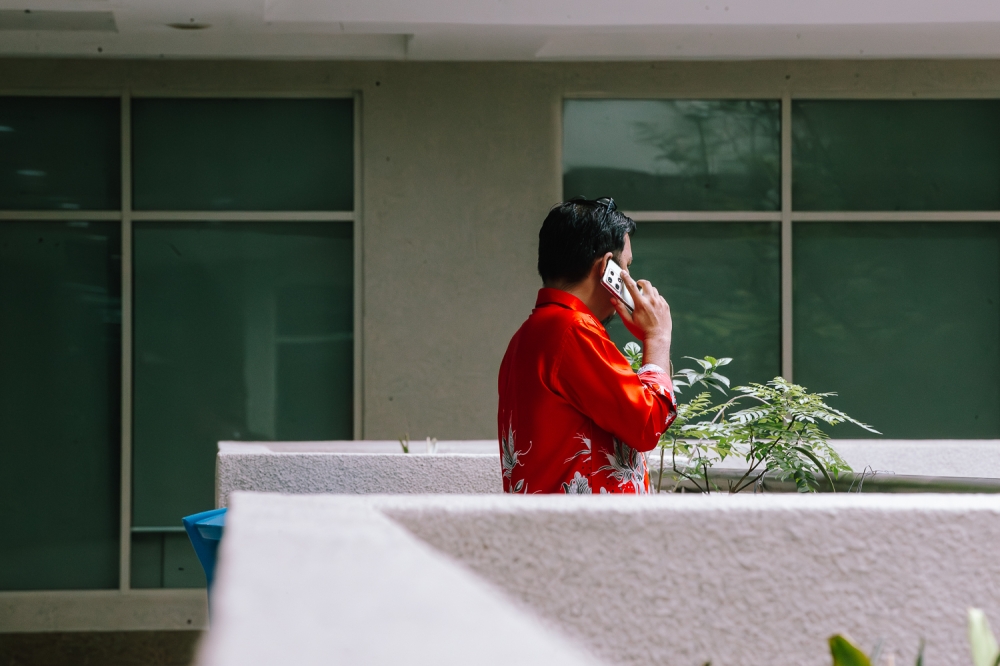Listen to the article
Malaysia is developing new legal and policy frameworks to combat the growing threat of misinformation and disinformation, according to Communications Minister Datuk Fahmi Fadzil, who warned that these issues could undermine the nation’s social harmony and security.
Speaking through the ministry’s Secretary-General, Datuk Seri Mohamad Fauzi Md Isa, at the International Media and Communication Conference 2025 (MENTION2025) in Kuala Lumpur on Monday, Fahmi outlined several measures being drafted by the government. These include a strengthened Anti-Fake News Act, ethical guidelines for social media influencers to promote responsible content, and an artificial intelligence framework designed to ensure ethical use of technology.
“Media and digital literacy must become part of both formal and informal education,” Fahmi stated. “Our young generation needs to be equipped not only with the technical skills to use technology but also with the wisdom to assess credibility, understand media bias, and become responsible users and creators.”
The initiative comes as Malaysia grapples with its status as one of Southeast Asia’s most digitally connected nations. According to the Ipsos Digital 2025 report cited by Fahmi, Malaysians spend an average of eight hours daily online. This high level of internet usage has corresponded with a surge in digital harms, with the ministry receiving over 15,000 complaints last year related to harmful content, fake news, and cybercrime.
“This clearly shows that media literacy and responsible communication are no longer optional — they are essential for the survival and resilience of our digital society,” Fahmi emphasized.
The minister also highlighted the importance of intercultural communication in Malaysia’s diverse society, stressing that media should function as a bridge between communities rather than dividing them. This focus on inclusive communication reflects the broader goals of the Malaysia Madani framework, which emphasizes unity and social cohesion in the multicultural nation.
Mental health emerged as another key concern during the minister’s address. Fahmi cited alarming statistics showing that one in three Malaysian adolescents experiences significant levels of depression and anxiety, advocating for media and communication platforms to normalize mental health discussions and provide support resources.
“Media and communication platforms must be used to normalise discussions about mental health and offer support where it is needed,” he said.
The comprehensive approach being developed by the Communications Ministry represents a significant shift in how Malaysia intends to regulate its digital ecosystem. Previous attempts to address misinformation, such as the 2018 Anti-Fake News Act that was later repealed, faced criticism for potentially limiting freedom of expression. The new framework appears to balance regulatory measures with education and multi-stakeholder collaboration.
Fahmi called for greater cooperation between government agencies, academic institutions, media organizations, and civil society to develop effective and holistic communication policies. This “whole-of-nation approach,” as he described it, aims to align media and communication transformation with Malaysia’s broader national development goals.
The initiative reflects growing global concerns about digital misinformation and its potential to disrupt societies. Across Southeast Asia, governments have been implementing various approaches to address online falsehoods, from Singapore’s Protection from Online Falsehoods and Manipulation Act to Indonesia’s electronic information laws.
Industry experts note that Malaysia’s focus on digital literacy alongside regulatory measures represents a more balanced approach that acknowledges both the need for rules and the importance of empowering citizens to navigate the digital landscape responsibly.
As these new frameworks take shape, observers will be watching closely to see how Malaysia balances effective regulation of harmful content with the protection of free expression in its increasingly connected society.
Fact Checker
Verify the accuracy of this article using The Disinformation Commission analysis and real-time sources.




12 Comments
Curious to see how the government will balance freedom of expression with measures to curb the spread of misinformation. A nuanced approach that upholds democratic principles while ensuring public safety will be crucial.
That’s a fair point. Striking the right balance will be a delicate challenge, but necessary to preserve both individual liberties and social stability.
Combating disinformation and promoting media literacy are critical for maintaining social harmony and security. Malaysia’s approach of strengthening legal frameworks and emphasizing digital education for the youth is a prudent step forward.
Agreed. Responsible content creation and ethical use of technology will be key to this initiative’s success.
While the goal of combating disinformation is laudable, the implementation of these new policies will require careful consideration of unintended consequences. Preserving freedom of speech while mitigating harm is a delicate balance.
As one of Southeast Asia’s most digitally connected nations, Malaysia faces unique challenges in managing the flow of information. This new legal framework could serve as a model for other countries grappling with similar issues.
That’s a fair point. Malaysia’s experience in this area could provide valuable insights for the region and beyond.
The initiative to promote responsible content creation by social media influencers is a smart move. Their reach and influence can have a significant impact on public discourse, so guiding them towards ethical practices is a step in the right direction.
Agreed. Influencers wield a lot of power in shaping public opinion, so responsible guidelines for their content can go a long way in combating the spread of misinformation.
The use of AI to ensure ethical application of technology is an interesting approach. However, it will be crucial to maintain transparency and accountability in the development and deployment of such systems.
Absolutely. Rigorous oversight and public engagement will be essential to building trust in the AI framework.
The emphasis on media and digital literacy in both formal and informal education is a wise move. Equipping the younger generation with the skills to critically evaluate information sources is a long-term investment in a more informed citizenry.